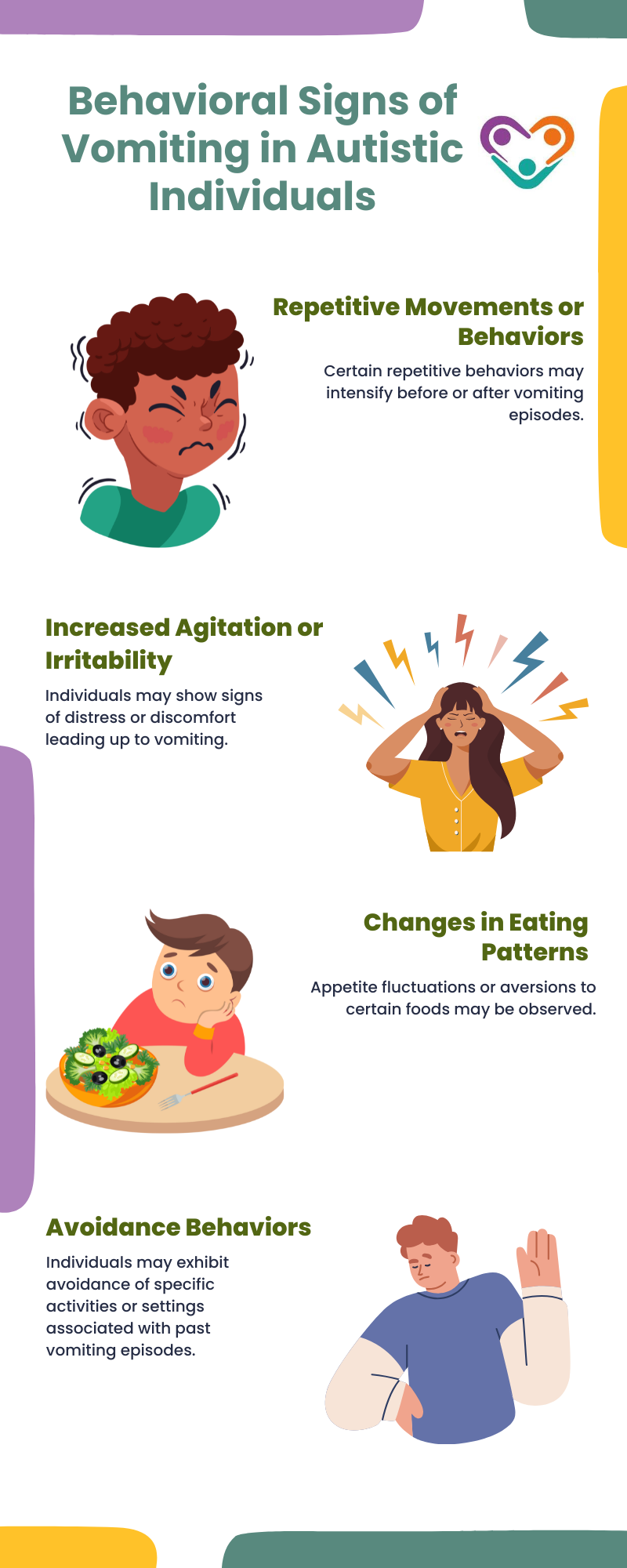How Autism Spectrum Therapies approach nonverbal communication barriers
How Autism Spectrum Therapies approach nonverbal communication barriers
Blog Article
Checking Out Reliable Methods for Sustaining Individuals With Behavioral Autism
Supporting people with behavioral autism requires a nuanced understanding of their special requirements. What specific techniques can you apply to guarantee these people thrive?
Comprehending Behavior Autism: Secret Features and Challenges
When you start to comprehend behavioral autism, you'll notice a number of crucial features and challenges that define the experience for people. Social communications could be testing; people might locate it tough to check out social hints, leading to misconceptions in connections.
It's important to identify that each person is distinct, and their experiences might vary. Recognizing these characteristics permits you to come close to support with empathy, promoting a positive link that can enhance their health and motivate growth.
The Relevance of Personalized Interventions
When it pertains to supporting people with behavioral autism, individualized interventions are vital. By creating tailored treatment strategies that concentrate on specific staminas, you can greatly enhance their advancement. Teaming up with assistance teams ensures everyone is straightened in offering the very best treatment possible.
Tailored Treatment Strategies
Producing tailored treatment plans is essential for successfully supporting people with behavior autism, as each person's needs, difficulties, and strengths vary significantly. By crafting these individualized strategies, you can address details behaviors and goals, making sure a more focused technique. Begin by gathering comprehensive info regarding the individual, including their preferences, triggers, and past experiences. Work together with teachers, caregivers, and specialists to recognize approaches that reverberate with them. Continually keep an eye on progress and readjust the strategy as essential, guaranteeing it continues to be reliable and appropriate. This versatility not only fosters interaction however likewise promotes a feeling of ownership and empowerment for the individual. Eventually, tailored treatment plans can considerably improve the quality of assistance you supply, causing even more significant outcomes.
Specific Toughness Evaluation
An individual strengths analysis is important for developing individualized treatments for individuals with behavioral autism. By concentrating on everyone's special abilities, you can create approaches that resonate with their abilities and interests. This technique not just improves involvement but likewise boosts self-confidence.
When you identify toughness, like phenomenal memory or artistic talent, you can customize treatments that utilize these locations. This not only makes finding out much more effective however additionally promotes a sense of achievement. Bear in mind, every individual has distinct abilities; acknowledging them empowers you to craft significant experiences.
Integrating these toughness into everyday regimens and healing techniques can cause enhanced outcomes. Eventually, focusing on strengths warranties that treatments are not just reliable yet also enriching for the individual.
Collaborative Assistance Groups
Recognizing specific toughness establishes the stage for forming collective support teams that concentrate on customized interventions. By bringing together specialists, family members, and the people themselves, you produce an encouraging network that customizes approaches to satisfy details needs. Each group participant adds special insights, making certain an extensive strategy that resolves behavioral difficulties properly.
This flexibility is necessary, as it helps every person involved remain straightened with the individual's preferences and goals. In addition, engaging in this team-based method encourages individuals with autism, promoting their self-advocacy and self-confidence.
Evidence-Based Communication Techniques

When collaborating with people on the autism range, using evidence-based communication techniques can substantially boost their capacity to attach and express themselves. Using visual supports, like picture schedules or communication boards, assists make clear assumptions and promotes freedom. Streamlining language and making use of concrete terms allows for much better understanding, lowering disappointment.
Including social tales can prepare individuals for various situations, showing them appropriate actions and behaviors. Motivating making use of assistive innovation, such as speech-generating gadgets, encourages people to connect better. Furthermore, using predictable environments and constant regimens can give a feeling of protection, making interaction more effective.
Bear in mind to be individual and give them time to refine your words. Taking part in energetic listening, where you mirror their feelings and thoughts, can enhance your link. By executing these techniques, you'll produce an extra supportive communication atmosphere for people with autism.
Creating Supportive Settings
Creating encouraging atmospheres for individuals with behavior autism starts with applying structured regimens that supply predictability and safety. You'll also desire to develop sensory-friendly rooms that satisfy individual requirements, reducing overwhelming stimuli. Additionally, making use of favorable reinforcement strategies can motivate desired actions and foster a feeling of accomplishment.
Structured Regular Execution
Developing a structured regimen can considerably improve the atmosphere for individuals with behavioral autism. By developing a regular timetable, you give predictability, which can reduce stress and anxiety and confusion. A well-structured environment cultivates independence and confidence, supporting their total development.
Sensory-Friendly Spaces Style

Positive Reinforcement Techniques
When you integrate positive support methods right into your technique, you can significantly improve the learning and behavior outcomes for individuals with autism. This involves recognizing and awarding desired actions, which motivates rep of those actions. Begin by identifying what motivates the specific-- be it commend, tokens, or special tasks. Enhance positive actions right away to produce a clear connection between behavior and benefit. Consistency is key; warranty that everybody entailed in their treatment applies the very same reinforcement techniques. You can also gradually increase the intricacy of tasks as people come to be much more comfortable, enhancing their progression. By developing a setting where positive behaviors are acknowledged, you foster self-worth and a sense of accomplishment, eventually supporting their advancement and well-being.
Collaborative Strategies: Collaborating With Families and Specialists

Including household participants in decision-making encourages them and boosts their capacity to sustain their enjoyed ones. Experts, consisting of specialists and instructors, can give valuable resources and training that additionally help households.
You should also appreciate each celebration's point of view, identifying that households know their youngster ideal while experts bring specialized understanding. By crafting personalized plans together, you develop a customized technique that deals with distinct needs. Autism Therapist. Ultimately, this collaboration not only profits the private with autism however likewise strengthens the assistance network bordering them, making it extra cohesive and effective
Incorporating Social Abilities Training
Building on the strong partnerships created between specialists and family members, integrating social skills training can greatly improve the support given to people with behavior autism. This training assists you instruct vital interaction skills, such as starting conversations, understanding non-verbal cues, and reacting appropriately in social scenarios.
By utilizing structured tasks, role-playing, and real-life scenarios, you develop chances for method in a safe atmosphere. Encourage individuals to take part visit our website in team settings where they can involve with peers, fostering relationships and improving their comfort in social contexts.
It's crucial to tailor the training per individual's special strengths and obstacles, ensuring they really feel like this confident and capable. On a regular basis incorporating comments from both families and specialists can refine these approaches, making social abilities training much more efficient. Eventually, you're encouraging individuals with the tools they need to navigate social interactions efficiently and build meaningful relationships.
Checking Progress and Adjusting Techniques
As you carry out social skills training, it's crucial to keep track of development and readjust strategies as necessary. Track habits, keeping in mind problems and improvements. Usage tools like charts or checklists to visualize development and determine patterns. Routinely examine your observations to analyze what's working and what isn't.
Involve the person in reflection, asking exactly how they feel about their progression and what difficulties they deal with. This responses is very useful for customizing your strategy. If certain approaches aren't generating outcomes, don't think twice to customize them.
Include a selection of methods to keep the training interesting and vibrant. Work together with other caregivers or specialists for fresh point of views and insights. Bear in mind, versatility is essential; what jobs today may not work tomorrow. By remaining responsive and conscientious, you create a setting that promotes development and advancement. Constantly celebrate achievements, regardless of exactly how small, to urge continued effort and excitement.
Often Asked Inquiries
What Are the Typical Misconceptions Concerning Behavioral Autism?
You may think behavioral autism just influences communication, yet it includes a lot more. Many think all people with autism act the same, overlooking their special characteristics and capabilities. It's necessary to comprehend each person's distinctions.
Just How Can Modern Technology Help in Sustaining People With Behavior Autism?
Modern technology can improve interaction, providing tools like apps for social skills and behavior tracking. You can use online fact for immersive experiences, and wearable tools can monitor moods, aiding you support individuals efficiently.
What Function Do Sensory Processing Issues Play in Behavioral Autism?
Sensory handling problems can considerably affect actions. You could notice that overwhelming sensory input results in stress and anxiety or crises. Comprehending these obstacles assists you produce a much more helpful atmosphere for people experiencing sensory overload.
Exist Specific Nutritional Referrals for Individuals With Behavioral Autism?
Yes, particular dietary recommendations can help. You could consider a gluten-free or casein-free diet, which some find beneficial (Autism Therapist). Constantly get in touch with a medical care professional before making substantial adjustments to ensure it's appropriate for you or your loved ones
How Can Peers Be Informed to Support People With Behavioral Autism?
To enlighten peers, you can organize workshops, create interesting materials, and urge seminars. Involving activities, like role-playing circumstances, assist them understand challenges dealt with by people, fostering compassion and efficient assistance within the neighborhood.
Discovering Efficient Techniques for Supporting People With Behavioral Autism.
Producing tailored treatment plans is important for properly supporting people with behavioral autism, as each individual's demands, difficulties, and toughness vary significantly.An individual strengths evaluation is crucial for establishing customized interventions for people with behavior autism.To sustain individuals with behavioral autism, developing sensory-friendly rooms is important, as it can substantially improve their comfort and emphasis.Collaborative methods are necessary for sustaining people with behavior autism, as they promote a strong collaboration in between experts and households.
Report this page